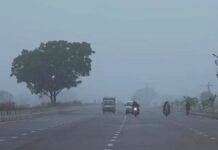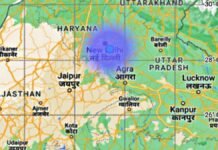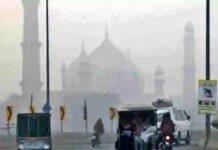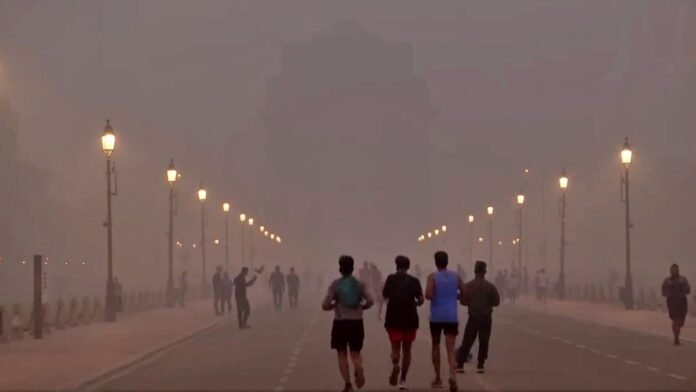
New Delhi: The national capital and its adjoining areas are reeling under severe air pollution, forcing the authorities to take emergency measures to protect public health. The Delhi government has ordered all primary schools to remain closed till November 10 and given the option to shift to online classes for classes 6 to 12. Delhi’s Education Minister Atishi Marlena announced the decision on Twitter, citing the high level of pollution in the city.
According to the Central Pollution Control Board (CPCB), the Air Quality Index (AQI) in Delhi was recorded at 468 on Friday morning, which falls in the ‘severe’ category. An AQI between 0 and 50 is considered ‘good’, 51 and 100 ‘satisfactory’, 101 and 200 ‘moderate’, 201 and 300 ‘poor’, 301 and 400 ‘very poor’, and 401 and 500 ‘severe’. A ‘severe’ AQI means that the air can cause respiratory illnesses and affect even healthy people.
The CPCB data showed that almost all the monitoring stations in Delhi-NCR reported ‘severe’ AQI, with some areas crossing the 500 mark. The main pollutants were PM2.5 and PM10, tiny particles that can enter the lungs and bloodstream and cause serious health problems. The safe limits for PM2.5 and PM10 are 60 and 100 micrograms per cubic metre, respectively. However, the average levels of PM2.5 and PM10 in Delhi were 292 and 448 micrograms per cubic metre on Friday morning, according to the CPCB.
The main causes of air pollution in Delhi-NCR are the emissions from thermal plants and brick kilns, vehicular exhaust, dust from construction activities, and stubble or biomass burning by farmers in neighbouring states. The stubble burning, done to clear the fields for the next crop, contributes to the smog that engulfs the region every winter. According to the System of Air Quality and Weather Forecasting and Research (SAFAR), the share of stubble burning in Delhi’s PM2.5 pollution was 35% on Thursday, the highest this season.
The stubble burning is also affecting the air quality of the cities in Punjab, where the farmers grow large amounts of paddy and wheat. The AQI in Bathinda was 385, Ludhiana 301, Khanna 265, Jalandhar 291, Amritsar 264, Patiala 251 and Mandi Govindgarh 277 on Friday morning, according to the CPCB. The Punjab government has banned stubble burning and announced incentives for farmers who adopt alternative methods of disposing of the crop residue.
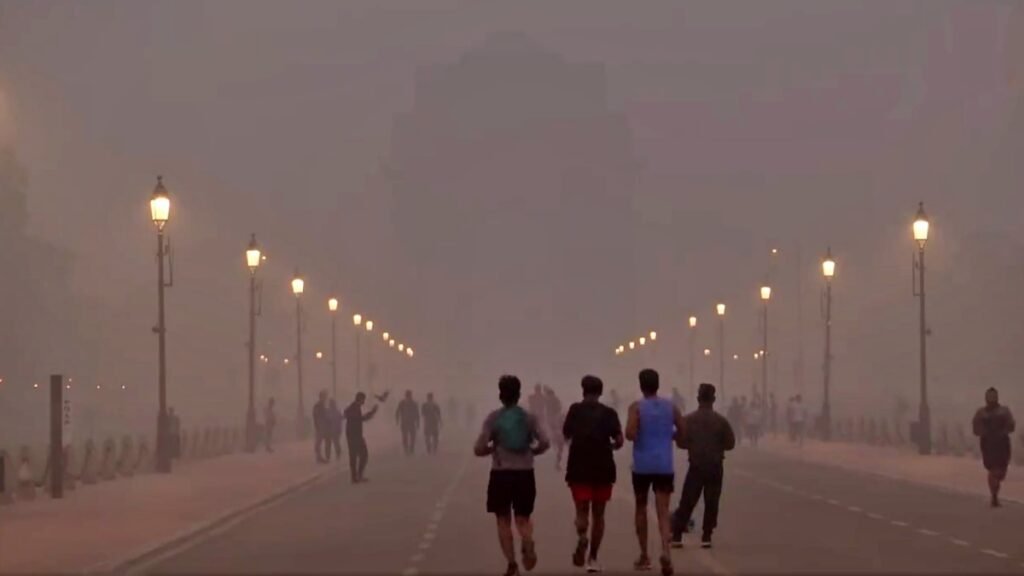
To combat the air pollution crisis in Delhi-NCR, the authorities have taken several steps, such as banning the construction and demolition activities till further orders, restricting the entry of heavy vehicles, increasing the parking fees, and enhancing the public transport services. The Supreme Court-appointed Environment Pollution (Prevention and Control) Authority (EPCA) has also urged people to avoid outdoor activities and use masks when exposed to the polluted air. The EPCA has also warned that if the situation worsens, it may impose ’emergency’ measures under the Graded Response Action Plan (GRAP), which include shutting down schools, banning the entry of trucks, and implementing the odd-even scheme for private vehicles.

































